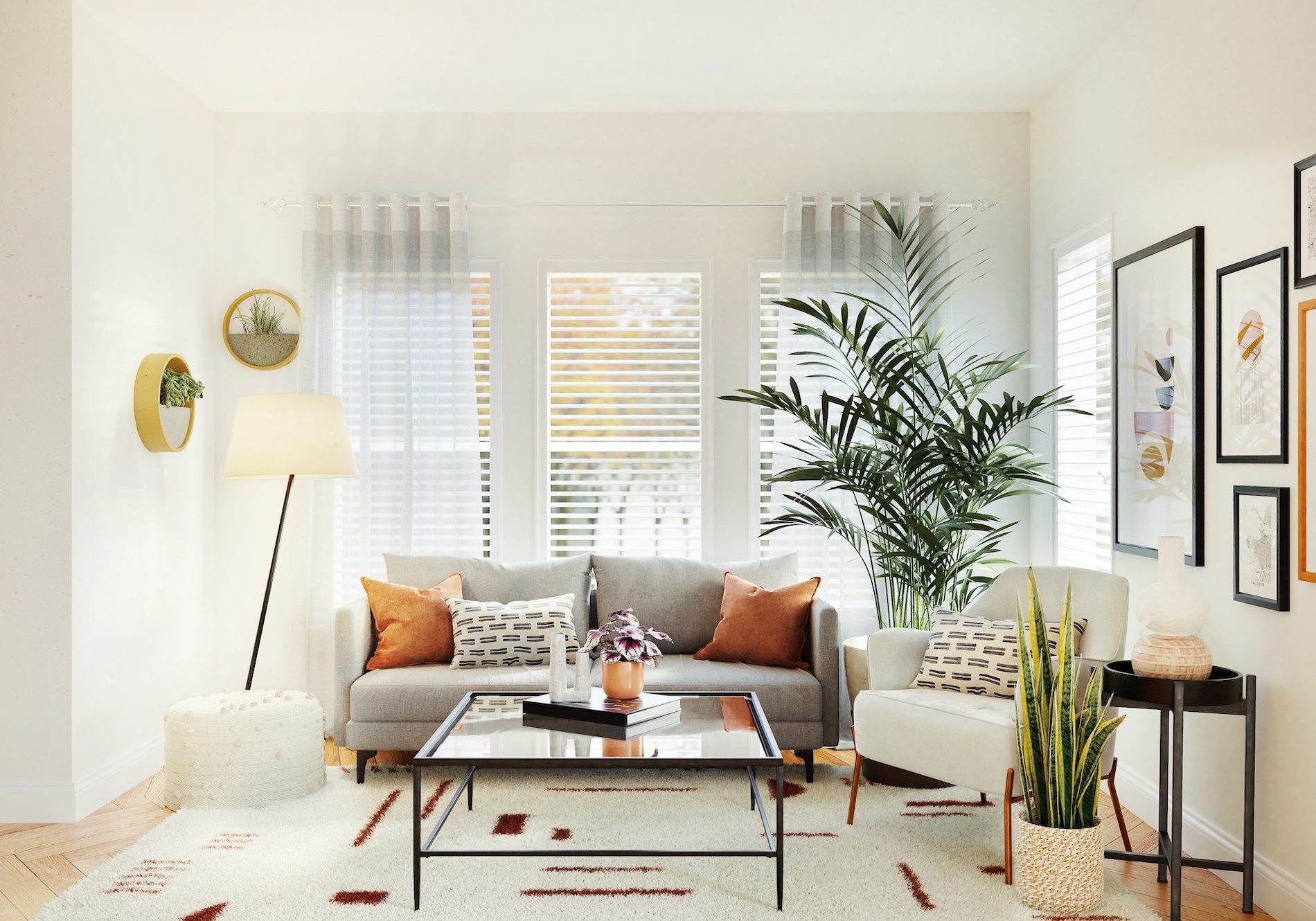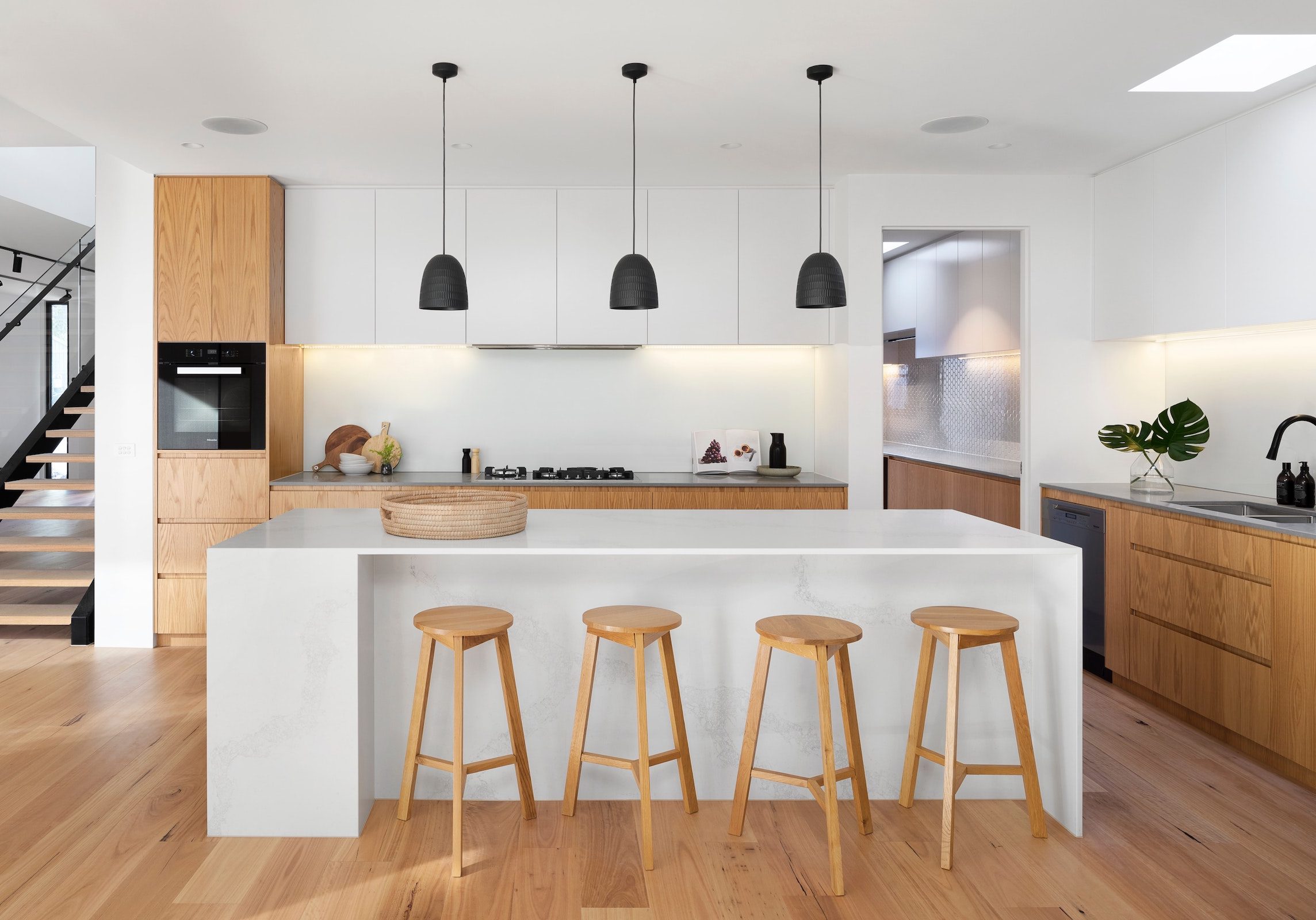Home Staging - First impressions are everything
As the saying goes, first impressions are everything. And the same holds true when selling your home. Beyond making sure that your home is squeaky clean, staging can be the difference between boring and breathtaking. Staging highlights your home’s best features and helps minimize any drawbacks. It allows buyers to feel comfortable and visualize themselves in your home without distraction. This is especially important if it is not occupied because an empty home has a difficult time communicating its potential to prospective buyers. When staging your home, you can either hire a professional stager or simply make adjustments to your own décor using the following guidelines.

Enhance Your Home’s Appeal
When preparing your home for sale, think about why you fell in love with your home in the first place, and what you still love about it. Did the entryway feel particularly welcoming? Do you love the flow of the living spaces? Perhaps it’s how the sunlight pours into the kitchen? Enhancing and highlighting these details can help evoke the same feeling for prospective buyers. Another useful tactic is to look at your home through the eyes of a buyer; it’s this process that is sometimes hard for sellers and why hiring a professional home stager can be the way to go. If hiring someone is out of the question, you can also look to your real estate agent for help with this process; they don’t have a sentimental attachment to your home, so it’s easier for them to provide an objective opinion.
Keep It Neutral
You may love your bright red accent wall or colorful art collection, but potential home buyers may not. Before showing your home, you will want to make an effort to tone down loud colors and create something of a blank canvas so buyers can better envision themselves—and their things—in your home. Kids’ rooms are no exception; you may want to avoid overly gendered or bold colors in bedrooms and bathrooms. A future homeowner may not have children or may see the space as an office or guest room, so showcasing rooms in a versatile light is best. Keeping it neutral applies to smell too. Don’t overpower your home with heavy scents using air fresheners or potpourri, but at the same time, you don’t want your closet smelling like sweat socks, so use your best judgment.
Less Is More
It’s time to clear out the clutter. You may not think of family photographs or books and trinkets as clutter, but to the prospective buyer, they’re exactly that. As such, all personal and superfluous items should be stored away—offsite if your home’s storage is at a premium. Excess furniture can make a room feel cluttered too, so it’s a good idea to store, sell, or give away surplus or bulky furniture. Bookcases should be thinned out and closets cleared to the point of almost being empty. Any religious memorabilia or political ideologies should also be absent from your home so as to not offend a prospective buyer who may not share your same beliefs. Once your home is staged, it may not feel as functional or personal, but it will do a better job of showcasing the space for buyers.
Let There Be Light
Another important element is the lighting. Bright, well-lit houses seem more spacious and cheerful. During the day, all the curtains and drapes should be open. If the view is unappealing, you can simply purchase sheer window coverings that let light through, but mask the view. Another way to brighten up your home is to turn on all the lamps, even during the day. And don’t forget about hallways, closets and stairways—they too need their share of light.
Feels Like Home
You don’t want to remove all the personality from your home; rather you want to showcase the space in the best possible light while making it feel welcome and comfortable. You may want to rearrange furniture to fit the rooms better, de-centralize the television, pull furniture away from the walls, or create cozy spaces to invoke a certain feeling or environment. Staging is especially important if the home is not occupied because an empty home has a difficult time communicating its potential to prospective buyers. In fact, studies show staged homes typically sell faster (and for more money) than empty homes, so consider rental furniture to fill the space and give it a sense of hominess.
Helpful Home Staging Tips
- Go through your home room-by-room and make changes holistically for each space.
- Store any unnecessary objects and personal items (off-site if possible).
- Group furniture in a way to make rooms feel more spacious.
- Clean up closets, cabinets, and other built-ins to make spaces look larger and more organized.
- Paint over bold wall paint with more neutral colors to appeal to a larger audience of buyers.
- Well-lit homes are more inviting; the right lighting also makes rooms appear more spacious.
- Enhance your home’s greatest assets and minimize the drawbacks.
- Look for opportunities to repurpose or reorganize spaces into usable rooms (i.e., convert storage space into an exercise studio).
- Make a special effort in bedrooms and bathrooms with nice linens; this makes rooms feel more intimate, polished, and appealing to potential buyers.
- Stage your dining room for a dinner party with table linens, dishes, silverware, and other table décor (i.e., candle sticks, flowers, etc.).
- Replace old curtains, cushions, and area rugs (you can find inexpensive replacements at discount stores and thrift shops).
- Keep counters clear of clutter; remove drying racks, fridge magnets, drinking glasses, toothbrush holders, and anything else that can be distracting to the eye.
- Remember, when staging a home, less is usually more!

Ready to sell?
Connect with us to find a broker. Find an office near you or call us and we will help connect you with a Windermere Broker.
Eugene
1600 Oak Street,
Eugene, OR 97401
541-484-2022
North Eugene
3011 N Delta Hwy,
Eugene, OR 97408
541-465-8103
Vida
45632 McKenzie Hwy
Vida, OR 97488
541-484-2022
Florence
1625 12th Street
Florence, OR 97439
541-997-5926
Cottage Grove
609 E Main St.,
Cottage Grove, OR 97424
541-566-7440